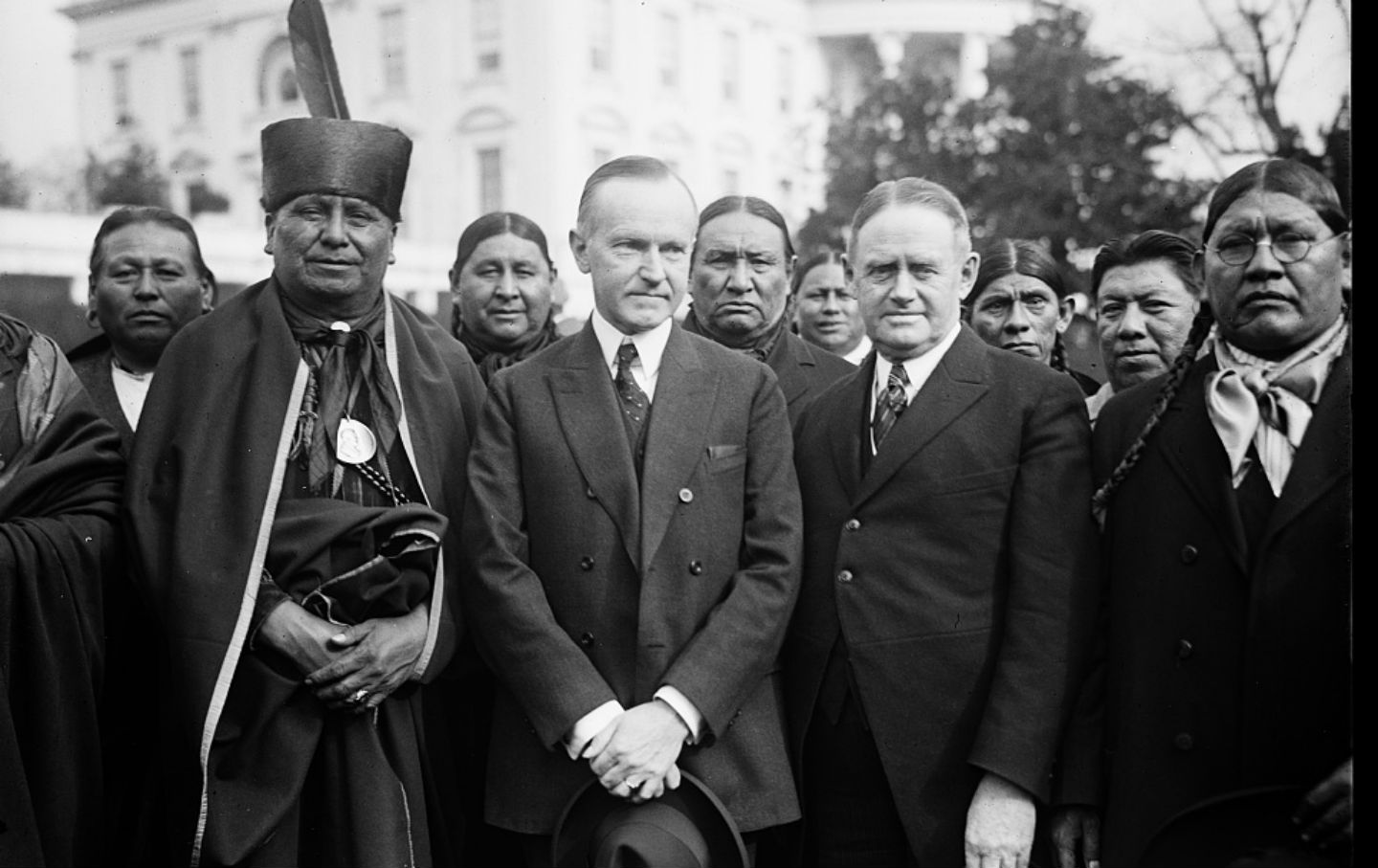In 1924, President Calvin Coolidge signed into law the Indian Citizenship Act, which granted citizenship to all Native Americans born in the United States. This was a significant moment in American history, as it marked the end of a long struggle for citizenship and civil rights for Native Americans.
At the time, there were an estimated 350,000 Native Americans living in the United States, about two-thirds of whom were either not citizens or were unable to vote due to state laws. The Indian Citizenship Act changed all that, granting them full citizenship and access to the ballot box.
The passage of the Indian Citizenship Act was a positive step forward for Native Americans, but it also had some unintended consequences. One major impact was the loss of tribal sovereignty, since tribal members were now considered U.S. citizens and subject to federal and state laws.
The loss of tribal sovereignty was especially devastating for tribes that had already been pushed off their land and onto reservations. These tribes had already experienced great loss and hardship, and the Indian Citizenship Act made them even more vulnerable to intrusion by non-Native Americans and federal government policies.
Despite this negative impact, the Indian Citizenship Act was a significant milestone in Native American history, marking a turning point in the struggle for Native American rights and recognition.
Prior to the passage of the Indian Citizenship Act, Native Americans had been treated as second-class citizens, denied the right to vote, and subjected to discriminatory policies and practices. This began to change in the early 20th century, as Native American activists began to organize and advocate for their rights.
One of the key figures in this movement was Carlos Montezuma, a Yavapai Indian who had studied medicine in Chicago and become an outspoken advocate for Native American rights. Montezuma was instrumental in bringing attention to the plight of Native Americans, and he lobbied Congress to grant them citizenship.
Montezuma’s efforts paid off in 1919, when Congress passed the Indian Citizenship Act of 1919, which granted citizenship to Native Americans who joined the U.S. military or who had completed a period of study at an accredited college or university. However, this legislation did not go far enough in granting citizenship to all Native Americans.
It wasn’t until 1924 that Congress passed the Indian Citizenship Act, extending citizenship to all Native Americans born in the United States. This was a major victory for Native Americans, who had long been denied basic rights and recognition as citizens.
The Indian Citizenship Act had a significant impact on both Native Americans and the country as a whole. For Native Americans, it marked a major step forward in their fight for rights and recognition. It allowed them to participate fully in American democracy, giving them the right to vote and access to other benefits and privileges of citizenship.
However, the act also had some unintended consequences, particularly with regard to tribal sovereignty. By granting citizenship to Native Americans, the federal government effectively diminished the autonomy and self-governance of tribes. This has had lasting impacts on Native American communities, many of which continue to struggle with issues of economic and political autonomy.
The passage of the Indian Citizenship Act also had an impact on the rest of the country, as it helped to reshape popular perceptions of Native Americans. For many Americans, the idea of granting citizenship to Native Americans was a radical departure from earlier policies of forced assimilation and removal.
The Indian Citizenship Act helped to usher in a new era of recognition and respect for Native Americans, although the road ahead would be long and difficult. Despite the signing of the Indian Citizenship Act, Native Americans continued to face discrimination and marginalization, particularly in the areas of education, employment, and social welfare.
Today, the legacy of the Indian Citizenship Act continues to shape the relationship between the federal government and Native American tribes. While the act helped to grant Native Americans citizenship and access to the ballot box, it also paved the way for further encroachment on tribal sovereignty and autonomy.
Sources:
https://www.whitehousehistory.org/calvin-coolidge-and-native-americans
https://www.studysmarter.us/explanations/history/us-history/indian-citizenship-act-of-1924/
https://www.history.com/news/native-american-voting-rights-citizenship
